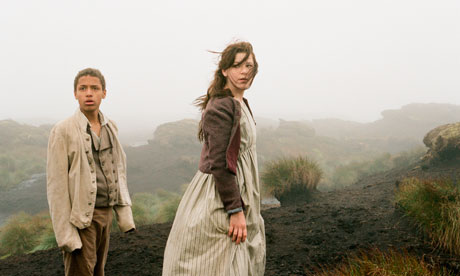 Methinks that The Prince and the Showgirl is second only to Apocalypse Now for being as well-known for its on-set troubles as for the finished movie itself. While the world waits for somebody to write My Week with Marlon, here is a new movie about Marilyn Monroe's one and only visit to England in 1956 to make The Prince and the Showgirl during which the newlywed and most famous woman in the world did nothing but bad things for director and co-star Sir Laurence Olivier's blood pressure, went skinny-dipping in a lake and became romantically involved with the fresh-faced, young third assistant director, on his first job straight out of Oxford, named Colin Clark. Or did she.........The story is certainly a fascinating one and My Week with Marilyn presents it as an old-fashioned entertainment that is engaging and very pleasant but largely forgettable.
Methinks that The Prince and the Showgirl is second only to Apocalypse Now for being as well-known for its on-set troubles as for the finished movie itself. While the world waits for somebody to write My Week with Marlon, here is a new movie about Marilyn Monroe's one and only visit to England in 1956 to make The Prince and the Showgirl during which the newlywed and most famous woman in the world did nothing but bad things for director and co-star Sir Laurence Olivier's blood pressure, went skinny-dipping in a lake and became romantically involved with the fresh-faced, young third assistant director, on his first job straight out of Oxford, named Colin Clark. Or did she.........The story is certainly a fascinating one and My Week with Marilyn presents it as an old-fashioned entertainment that is engaging and very pleasant but largely forgettable.Charismatically played by Eddie Redmayne (pictured above), Colin is agreeably sweet and gauche but a deal too wide-eyed and innocent to be believable and never once displayed the slightest hint of arrogance even when singled out to spend the eponymous week with his celebrity crush. He remained a perfect gentleman throughout the movie and the character's implausible lack of any shade of grey casts further doubt on the much-disputed veracity of his books The Prince, The Showgirl and Me and My Week with Marilyn, on which Adrian Shergold based his screenplay. The movie does feature a variety of enjoyable supporting performances particularly from Kenneth Branagh as an egotistical, authoritative Olivier. Although he never quite manages to fully embody his character in the same way Williams does, the tension and tetchiness between them is palpable. Monroe's insecurities as a celebrated movie star desperately trying to prove herself as an actress are tellingly contrasted with those of Olivier as a celebrated actor trying desperately to prove himself as a movie star. But then they are both quite nice really, aren't they? I had hoped that My Week with Marilyn would be an insightful piece of cinema but it is content to be sheer escapism.





